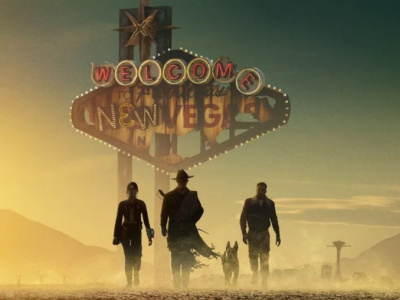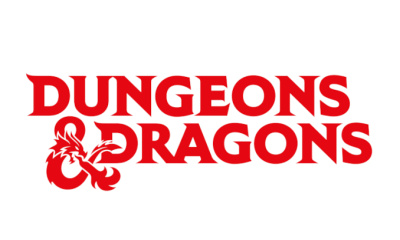For at least 15 years, digital distribution has represented both threat and promise to the comics economy. It was easy to envision doomsday scenarios of comic book shops going the way of video rental stores, or comics themselves being dismembered and demonetized like record albums in the age of Spotify. But whether by luck or circumstance, in comics, the digital experience has largely been a positive one, with new platforms attracting new fans and providing new sources of revenue for creators.
Today, the torch of original digital periodical comics is carried by webtoons, the mobile-first, vertically scrolling format popularized and dominated here by Naver’s WEBTOON platform, but meant in this usage to cover all similar products from any company. Webtoons proved their model in their home market of South Korea, where they are now the base of a content pipeline that feeds a media and entertainment industry via animation, K-drama television and streaming programming, videogames, board games, licensed merchandise and feature films.
Over the last few years, WEBTOON, Tapas and others have invested heavily in replicating that success in North America. To the extent they represent something new and exciting, the whole business benefits. But if they repeat the mistakes of legacy publishers, especially around treatment of creative talent, it will be just more of the same.
New fans, new opportunities. Webtoons have expanded the comics audience by providing an outlet for genres, stories and creators that were not well-served by the traditional print industry, including romantic comedy, slice-of-life, humor, light fantasy, and various mashups. They’ve provided a ladder for a more diverse array of aspiring creators to build an audience as they build their skills, and offer another employment option for both new and established creators. This is all an unmitigated good.
Now that success is rippling out to retailers and licensors. Webtoons are reaching bookshelves through publishers like Yen Press, Dark Horse Comics and Rocketship, while WEBTOON itself has now jumped into the game with the WEBTOON Unscrolled imprint. According to the company, WEBTOON Unscrolled has sold more than 200,000 copies into the channel since launching in November, 2022, and has turned several of its digital-first hits into best sellers.
As the media footprint of webtoons increases, these properties become more attractive for licensing and merchandise, and then the prevalence of licensed merchandise makes the IP more popular. We’ve seen that model work with both traditional comics and manga/anime, and it can certainly work for webtoons.
Webtoons are infusing the creator economy. If you’ve been online over the weekend, you’ve probably seen the trending hashtag #ComicsBrokeMe, where creators are sharing stories of the financial hardships and other hassles they’ve had to endure trying to keep afloat as comics professionals (see “R.I.P. Ian McGinty”). This is an unfortunate, long-standing issue of the industry, and the only real solution is companies spending more money: not something companies struggling in the trenches love to do.
New platforms, especially ones backed by deep-pocketed parent companies, investment, and tech industry valuations, tend to be willing to spread money around to bid for the services of established creators as a way to break into the market. Even if those rates and policies prove unsustainable in the long run, they can force incumbents to compete harder to keep the talent happy.
In the case of WEBTOON, which was already financially successful before its arrival in the US market and still only gets a small share of its global revenue from North America, the macro effects have been pretty significant. The company has not updated its creator earnings reporting for 2022, but it announced last summer that it paid out more than $27 million to creators in North America in 2020-2021, an increase of 75% since 2019. That’s following on policies that paid creators in its mature markets in South Korea nearly $1.7 billion in 2022, an 87x increase since revenue sharing was established in 2012.
What could go wrong? The problem is that those gains are not evenly distributed across the creator ecosystem. Lots of posts on the #ComicsBrokeMe thread come from makers of webtoon and other digital-first work. And those issues arise from the same basic problem: not enough dollars on the demand side to maintain a floor under creators who have not, or not yet, broken into the top ranks.
This situation is exacerbated when platforms ratchet up expectations for creators under contract at the lower end of the pay scale. For example, some within the webtoon industry have noted that minimum production requirements for professional creators have increased in recent years, from 40-50 panels per week (written, drawn, colored and lettered) to as high as 90-100 in some cases. Keeping that schedule for 50 weeks per year is a full-time job for most ordinary mortals, not a side hustle that can be accommodated alongside another paying gig that might even come with health insurance. If the rates are too low, that’s a recipe for burnout.
For some aspiring creators, the grind might be worth it if it means getting good placement on a global platform and access to all the tasty media and licensing plums that await. But when contracts offered to new creators contain fine print related to first look deals, rights of refusal, partial ownership of IP, and limitations on what creators can do with their creations if the platform cancels their title, that will eventually erode good will and staunch the flow of new content.
A new path for comics? No media, entertainment or comics company will come right out and say that they need to contain costs by grinding down their creators and keeping rights for themselves, but that is how the system has worked since time immemorial.
Digital-first comics and webtoons can be different and better, because they come to market without many of the costs and complexities of traditional distribution.
Most of these companies are unusually creator-dependent, at least for the time being, since they don’t have the corporate-owned IP of a DC, Marvel or Archie. It behooves them to take creator-friendly lines, at least initially. You can also see why it would be in their interests to build brand equity in the platform, a house style, and a few high-profile superstars.
But if these companies follow through on their commitment to creator equity, that’s a win-win for the entire business because it keeps the taps open for new content, new fans, new media and new merchandise. That’s a revolution worth cheering for. The alternative is becoming just another industry anecdote and just another hashtag.
The opinions expressed in this column are solely those of the writer, and do not necessarily reflect the views of the editorial staff of ICv2.com.
Rob Salkowitz (@robsalk) is the author of Comic-Con and the Business of Pop Culture and a 2023 Eisner Award nominee for comics journalism.
For more Webtoon Week articles, click here.

Column by Rob Salkowitz
Posted by Rob Salkowitz on June 14, 2023 @ 4:37 am CT
MORE COMICS
And Hearing Scheduled on 'Assume or Reject' Motions
August 26, 2025
The Court has also scheduled a hearing on publishers' motions that their consignment contracts be assumed or rejected.
Showbiz Round-Up
August 25, 2025
Hollywood news continues to trickle in late into August. Time for a round-up!
MORE COLUMNS
Column by Scott Thorne
August 25, 2025
This week, columnist Scott Thorne discusses Critical Role's decision to use Dungeons & Dragons 2024 rules over the Daggerheart RPG system in their newest campaign.
Column by Jeffrey Dohm-Sanchez
August 21, 2025
ICv2 Managing Editor Jeffrey Dohm-Sanchez continues to take a look at some of the issues revolving around Universes Beyond products.








